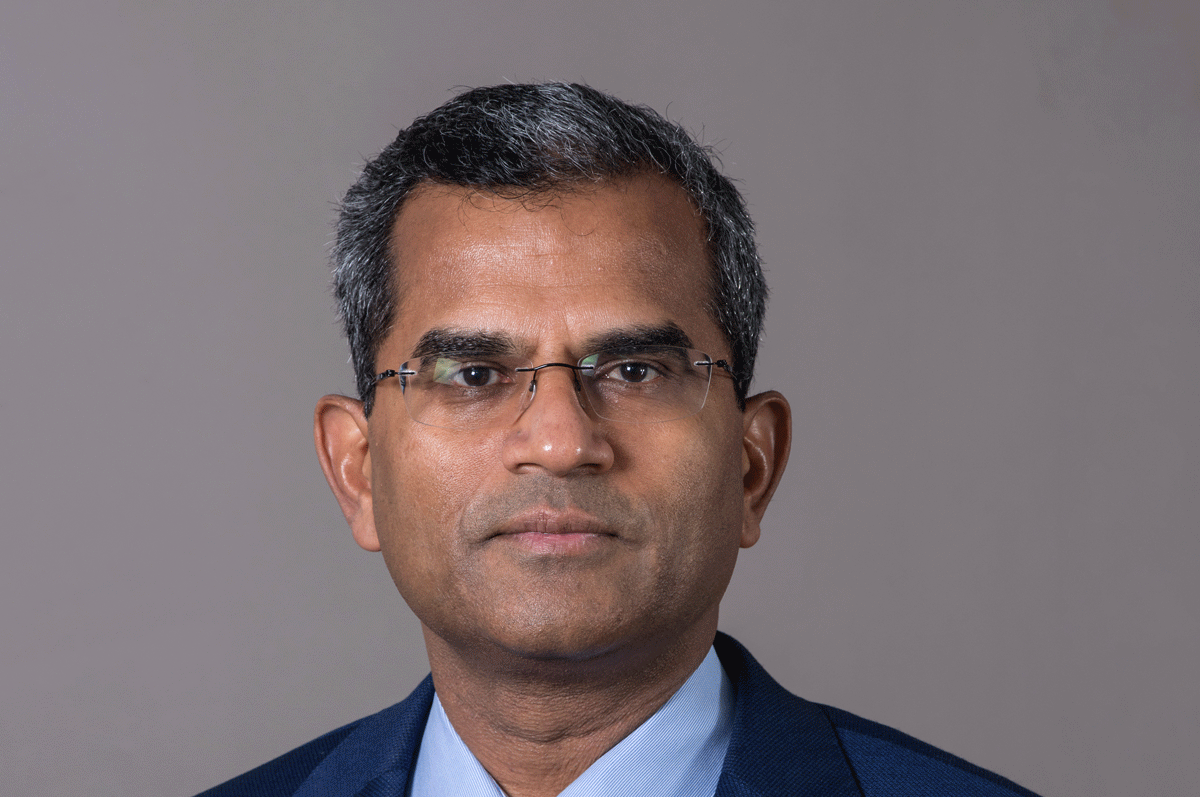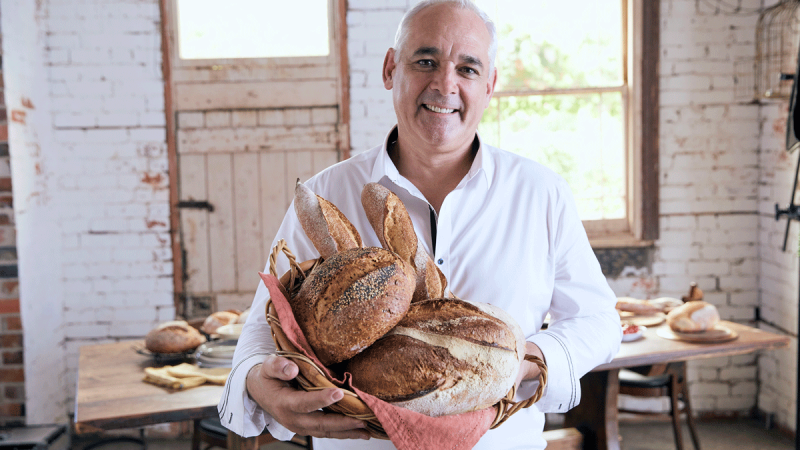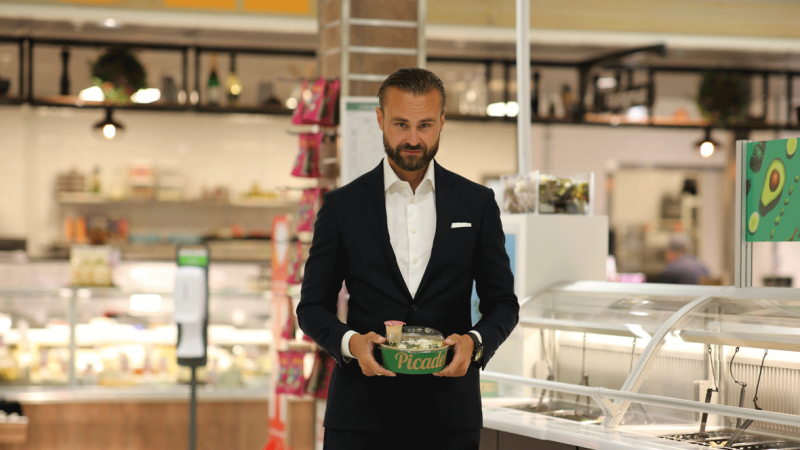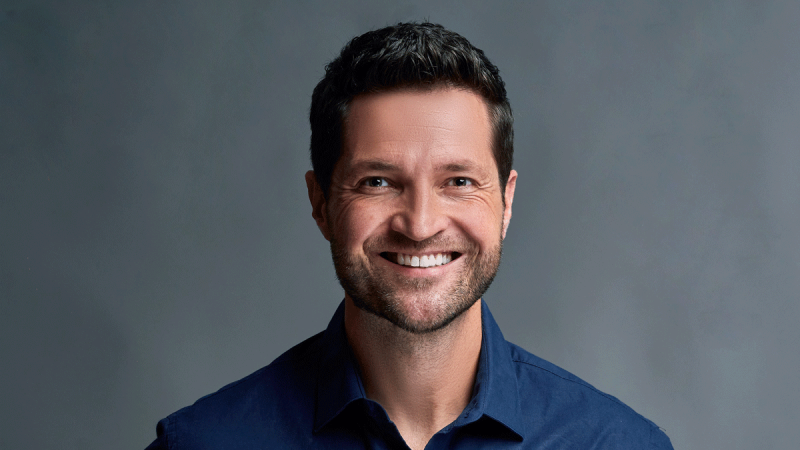AIF (Africa Improved Foods) is a joint-venture enterprise, established in 2016, to help people in Rwanda and the wider region achieve their full potential through improved access to nutritious, locally sourced foods.
As chronic malnutrition, especially during a child’s early years, often results in irreversible mental and physical damage including stunting, finding ways to address this challenge in Africa has become the mission of AIF.
Rwanda was identified as the pilot country for the business model of AIF, where the company was established as Public Private Partnership (PPP) between a number of international stakeholders as well as the Rwandan government. Since then, AIF has become a leading manufacturer in Africa of high-quality fortified blended foods, primarily for pregnant women and babies.
However, the company’s impact is much larger – as a unique feature, AIF has implemented a model to source raw materials locally where possible, which allows smallholder farmers to sell their maize on the cob, immediately after harvest, which decreases harvest losses and improves overall quality.
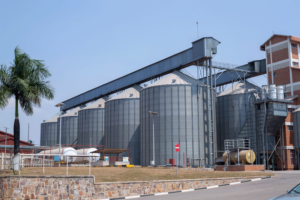 Supported to grow
Supported to grow
“AIF has created a whole value chain for a solution that is not just accessible for all, but also scalable and sustainable,” says Ramesh Moochikal, Chief Executive Officer who joined the company recently with a clear mission to spread the successful model across Africa.
A senior global leader with three decades of financial and operating acumen on the African continent, he possesses wide-ranging experience in starting up, growing and leading agri and food sector businesses in developing and frontier markets, as well as a deep knowledge of the local environment.
He noted that credit must be given to the government of Rwanda, who have been very supportive to the business, and are fully dedicated to combating malnutrition in the country.
“The amount of support the local government has provided for us to succeed is truly commendable. I have not seen this level of support, to our company as well as to the farming communities in terms of investment, anywhere else in Africa,” he noted, adding that the supportive business environment has wider implications.
“First, it shows that any further capital that we wish to invest in the country is safe. Importantly, the favourable conditions allow us to invite global and diverse talent with the confidence that if they come here, they will definitely want to stay here.”
Clear impact
Ramesh Moochikal explains that AIF today processes around 65,000 tonnes of maize and soya per year and is now the largest grain buyer in the country. From an economic perspective, AIF has created $1 billion in net incremental value added across the East Africa region and created more than 500 direct jobs. Additionally, AIF sources from a total of 90,000 smallholder farmers and hence directly improves rural lives and livelihoods.
AIF’s product range encompasses relief products and commercial products. The relief products are for institutional buyers such as the government of Rwanda and the World Food Programme (WFP) for use in public distribution programs for populations in vulnerable health, social, environmental, and financial situations.
In partnership with the government of Rwanda, AIF distributes its Shisha Kibondo range, a nutritious complementary porridge, free-of-charge to Rwandan mothers and infants. AIF is one of the two global manufacturers, and the sole producer in Africa, of the Super Cereal Plus series, a WFP recipe of nutritious cereal combination made from grains. WFP distributes this to vulnerable communities in Kenya, Uganda, Somalia, South Sudan, and Ethiopia.
The impact AIF has already achieved is impressive. “Following our intervention, stunting rates have dropped by double digits, as proven by an independent study conducted by the Clinton Health Initiative and the University of Chicago,” Moochikal stated.
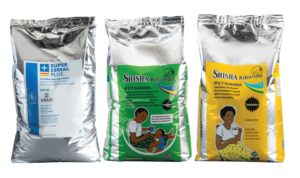 A game changer
A game changer
In May 2023, AIF introduced a new, redesigned commercial portfolio of fortified cereals, the Nootri range. This new line includes Nootri Baby, specifically designed for infants aged 6 to 36 months, and Nootri All Family, for kids and family.
The Nootri range has been designed to offer high-quality, nutritious food options to a wider consumer base at affordable prices. The product is packaged in small sachets to ensure affordability for households with low to medium incomes.
“Nootri for babies is a true game changer and, in many ways, superior to expensive imported products from major brand. Made from carefully selected, locally produced grains with the least aflatoxin levels and minimum gluten content, the product offers the highest quality nutrition at affordable prices,” said Moochikal.
Initially launched in Rwanda and Kenya, AIF plans to expand its market presence to Ethiopia and the EAC, aligned to the company’s ambitious plans to combat malnutrition across the Africa.
Speaking about the wider reach, Ramesh Moochikal affirmed that AIF’s products will always be country specific. “If you want to combat malnutrition, food has to be something that people like to eat. It cannot just be a standard porridge ‘pour water and eat it’. That would become very mundane. We are working on a variety of formulae so that every country will have a bunch of locally suited products.”
Wide African footprint
Ramesh Moochikal affirmed that his dedication to this good cause is shared by his young and highly qualified team. “What brought me here is the deeply disturbing numbers of stunting that threatens generations of innocent Africans. Whenever I speak to my team, it is clear that they are not here just for the job, but they really believe in the cause that we are working for. They are committed to supporting the founders’ mandate and expand our footprint across Africa, to battle malnutrition on a continental scale.”
The company is now finalising its strategic plan of expanding its business model further, first to Ethiopia, followed by two more countries within the next five years. “Given the size of the African continent, it will take three or four generations of leaders for the full vision of the highly committed shareholders to be delivered. But if we give enough momentum to this business over the next five to seven years, then we are well on our way.”
“Today, we impact about 2 million lives per day. We are certain that in five years’ time, we will be impacting over 10 million lives per day. Though the primary metric of our performance is impact, we will thrive as a financial entity by strengthening our offering of high-quality, affordable, nutritious food to the less fortunate. Growing our geographic footprint through clinical execution and the unstinting support of long-term investors is our strategy,” he concluded
